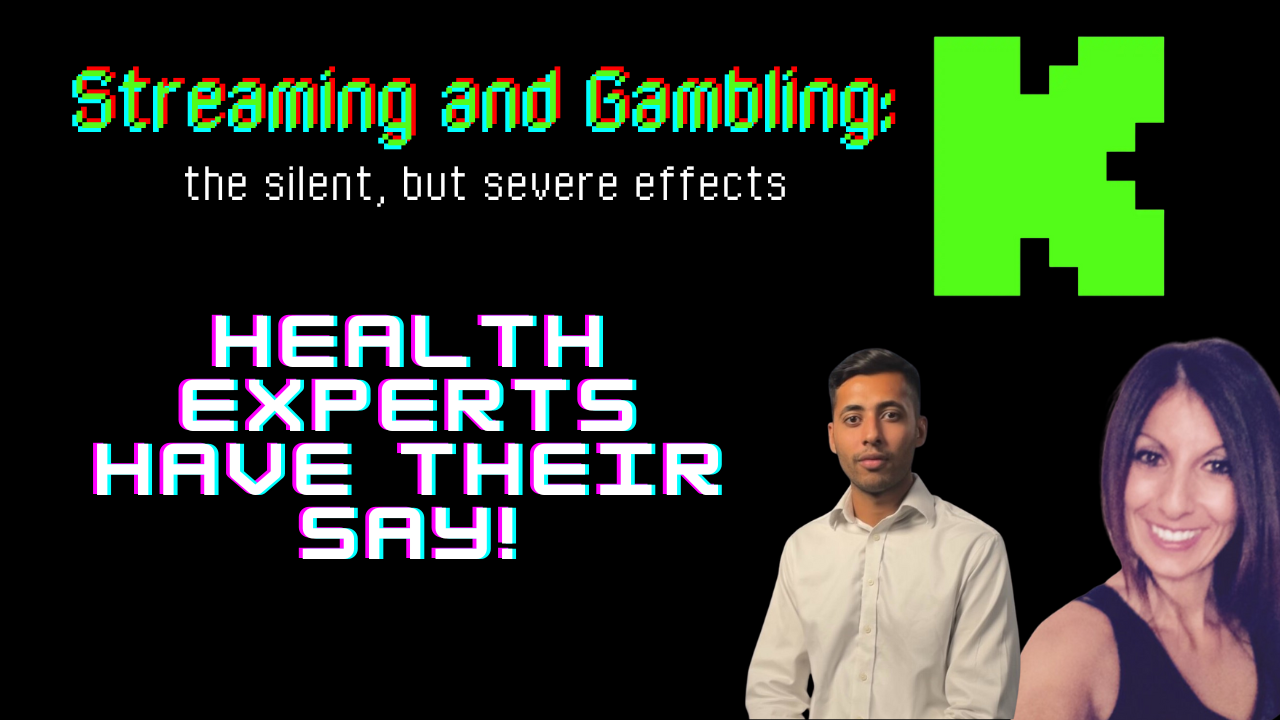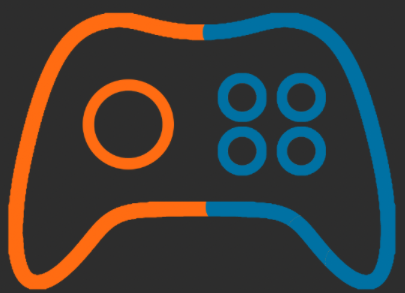Kick is the newest name in the world of streaming – but just like those that came before it, not enough is being done to protect online audiences from problem gambling
This story talks about gambling. If you or someone you know is a problem gambler, consider visiting GambleAware.
Since its inception, streaming site Kick.com has had no problem making the headlines. From being criticised for its approach to looser moderation to poaching a handful of rival site Twitch’s most popular content creators, it’s managed to earn quite a reputation in its short lifespan for its bold business moves.
When over 30 of the most popular Old School Runescape livestreamers signed with Kick in February, their strategy was further scrutinised. While the game has a loyal fanbase, it hardly pulls in the viewers that a Fortnite or Grand Theft Auto V does – so why’s the ‘medieval clicking simulator’ getting all the love from Kick?
The closest thing to an official explanation is that the Kick team ‘shares a love’ for Runescape, according to Partner Manager Abz, which rings true as co-founders Ed Craven and Bijan Tehrani met on the game. However, you’d have thought there might have been some love lost as the two were banned from the game in 2011 for running an in-game casino with the game’s digital currency.
This was only the beginning of the pair’s gambling ventures. The duo would go on to form Easygo Gaming — a company specialising in online casino games — before they would later set up Stake.com, one of the biggest online casinos in the world.
According to a report from Stream Scheme, while Stake and Kick have no official affiliation, Craven and Tehrani are majority shareholders of the company that owns the streaming site.
The duo, as well as co-owner and prolific gambling streamer ‘Trainwreckstv’, have seemingly influenced the site’s fairly lax guidelines surrounding gambling, with the ‘Slots & Casino’ section consistently being one of the most viewed categories on the site.
The crossover appeal from Craven and Tehrani’s perspective is obvious, making the streamer signings a perfect move for the platform. The Runescape community was less thrilled, however.
The news was met with criticism in the community, pointing out the potential risk of being exposed to problem gambling. A post with over 1,600 upvotes on the game’s most popular reddit page argues that the site was trying to push players towards gambling streams, claiming that Kick knows Runescape streamers have “the largest audience with gambling addictions” – a fair assessment as the game’s ‘Duel Arena’ minigame was removed in 2022, as it was a hotspot for players to develop compulsive gambling habits with their in-game currencies.
And Old School Runescape isn’t the only Kick category gambling is beginning to sneak into. Upon his signing in 2023, content creator Nick Koclheff, known online as NICKMERCS, revealed that gambling is “a part of his contract”, which Jake Lucky would later report was referencing a simultaneously-running contract with Stake.
Overheat reached out to Kick for comment on their approach to gambling moderation on the site, who didn’t respond.
Beirel Madrid, a member of NICKMERCS’ online community, spoke on his feelings about the changes to the stream: “It’s frustrating, because this community formed as a place for gamers who share a love for the FPS genre to come together and just enjoy games.
“Now I tune in during my free time sometimes, and it feels like I’m watching an advertisement.”
While Kick’s approach to gambling moderation is a lot looser than other streaming platforms, on-stream gambling isn’t exactly a new development. Twitch also has a slots category, which was extremely popular over the years until a set of guidelines changes in 2022 set out a list of prohibited sites – of which Stake was included – which saw the section shrink significantly.
The effects of consuming online gambling content on streaming platforms are relatively underexplored. We spoke to Dr Rayyan Zafar, a leading researcher at Imperial College London whose expertise lie in the psychology of gambling addiction, about the profound and often overlooked dangers of gambling livestreams.
Dr Zafar explained: “When you watch somebody gambling what you get is a surprise element, even if it’s not your own money; what you’re hooked on there is the novelty and surprise of winning, and that in itself can be very reinforcing.

One of the most widely recognised issues with livestreaming sites is the ease of accessibility. Streams flagged as strictly for mature audiences simply require the tick of a box to access, running the risk of providing young and vulnerable people such as ex-addicts with potentially harmful content.
Dr Zafar said: “There needs to be a lot more done to regulate these online streaming platforms for children, because the 16-24 age group is seeing a massive peak in gambling related problems.”
He also recognised a heightened danger created by digital platforms like Kick compared to traditional gambling, describing the normalisation of problem gambling as “pervasive”.
Citing a study, he revealed a six-fold increase in online gambling since the pandemic. Notably, Twitch saw similarly huge growth in its viewership across the pandemic, before their changes to gambling moderation in 2022.
He continued: “Digital gambling is a problem that can only really be tackled by regulation, but the gambling commission and other regulators have been pretty slow off the mark to regulate.”
Anthony Clarke*, a 40-year-old man from Teesside whose experiences with these online casinos led him to seeking support from Gamblers Anonymous (GA), told us his story.
*In the interest of privacy, some names in this article have been replaced by pseudonyms. Any resemblance to real persons, living or dead, is purely coincidental. These changes have been made to safeguard the safety and confidentiality of the individual.
He was brought up in a strict home, where his bad relationship with his parents led to beatings being a regular occurrence. At a young age he was receiving support for a range of behavioural issues, eventually leading him to try his hand at gambling and sending him on a downward spiral towards an addiction to roulette, blackjack and slots in online casinos.
Mr Clarke says: “I do believe that [gambling] is an emotional illness: I gambled on my emotions. If I was p*ssed off, I’d be angry and go to the bookies. If I got a promotion at work, I’d be happy and celebrate with a bet.”
Over time, he developed a gambling addiction so strong that its devastating impacts began to leak into his personal life. Financially he was in ruin, and his relationships with friends and family fell apart as he took on a number of loans which he couldn’t repay.
He says: “I eventually got to the point where I couldn’t live with gambling, but I also couldn’t live without gambling. It’s all I knew: Eat, breathe, gamble.”
Following a failed attempt to take his own life, he turned to GA where he would receive help to fight his addiction, never looking back.
“I’m now in a position where I have a wife and a daughter, and my life is fantastic,” he says, evidenced by the fact he now primarily attends GA sessions to help others fight their battles against gambling addiction.
Mr Clarke largely attributed his gambling addiction to his compulsive personality, but also detailed the dangers presented by engaging with gambling content, noting that he originally got into playing poker by watching televised tournaments on Channel 4. He also described the ease of access to online gambling content such as livestreams as a “massive concern for the younger generation”.
Anthony also noted that video games presented a more direct danger, describing how gambling advertisements on mobile games such as Candy Crush are ‘relentless’ risked relapses in his addiction.
“My biggest concern at the moment is that games like FIFA—or any games with loot boxes—are a massive danger to anyone falling into the trap of gambling,” he said.
These ‘loot boxes’, which acts as a form of gambling disguised through digital goods, are so dangerous that many governments across the world have clamped down on them.
The links are obvious as according to Dr Zafar, one in ten people who experience problem gambling also have problems with gaming.
Melisa Adams, an experienced psychotherapist who runs a private practice in Sheffield, treats clients with a range of addictive behavioural issues, including gaming and gambling.
She said: “There’s been a massive increase in online gaming addictions… and they’re not tending to come through at the age they should be, around 15 or 16.”
She also explained that many of these clients tend to be cross-addicted to digital devices and suffering from insomnia, and acknowledged the role of streaming sites contributing to this.
Speaking on treating different addictions, Ms Adams says: “Typically, treatment has to be tailored around what the client’s individual needs are.
“For example, some clients will come to me with online addiction. Some will use, bookies, casinos, that kind of thing… my therapy focus is helping clients understand the triggers of the addiction: what’s compelling them to gamble compulsively,” as she gears clients towards a more long-term approach to gambling rehabilitation.
Ms Adams also identified a lack of government action, pointing towards the enforcement of warning labels on cigarettes, arguing that similar methods should be enforced on websites promoting gambling content.







